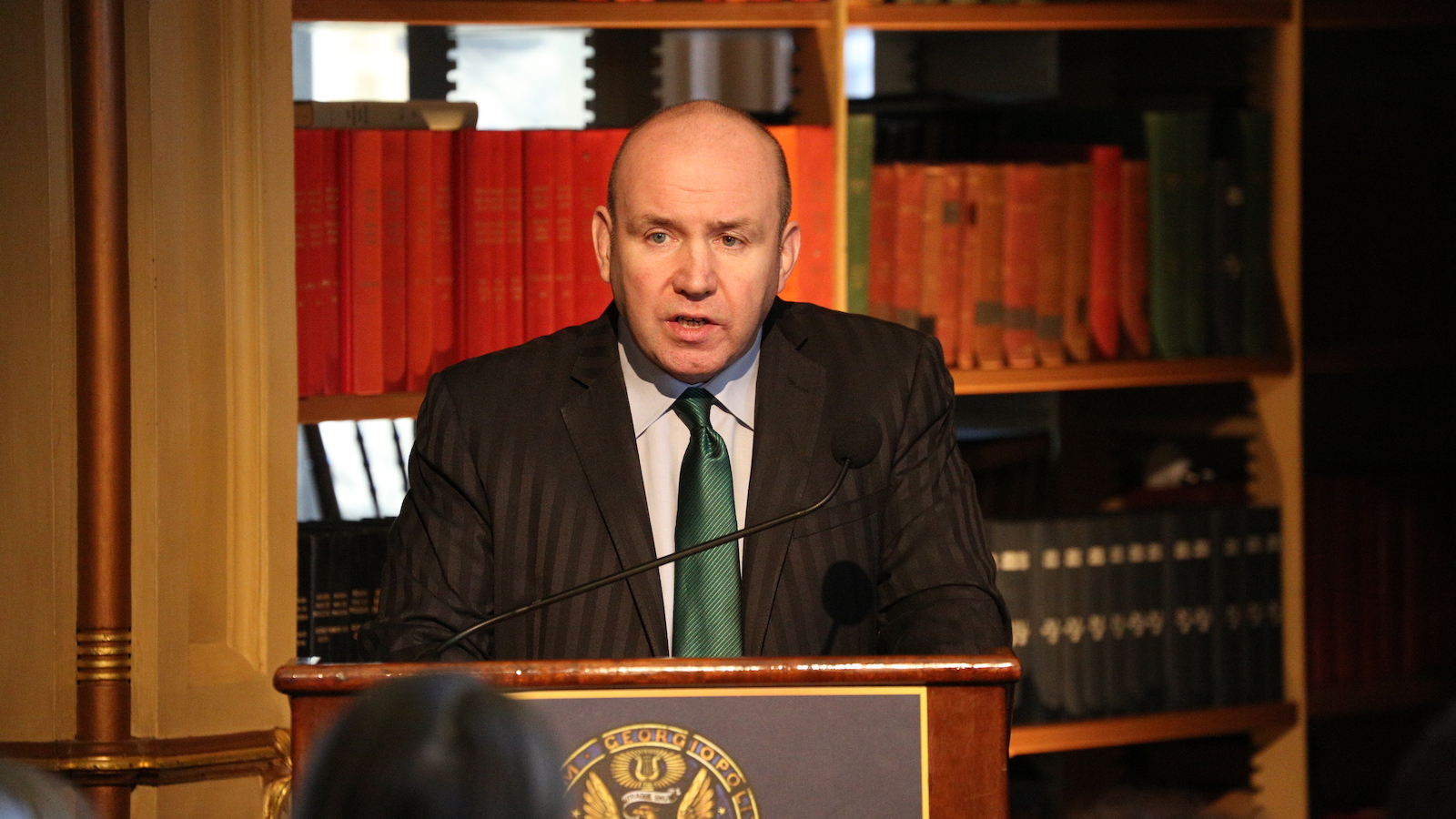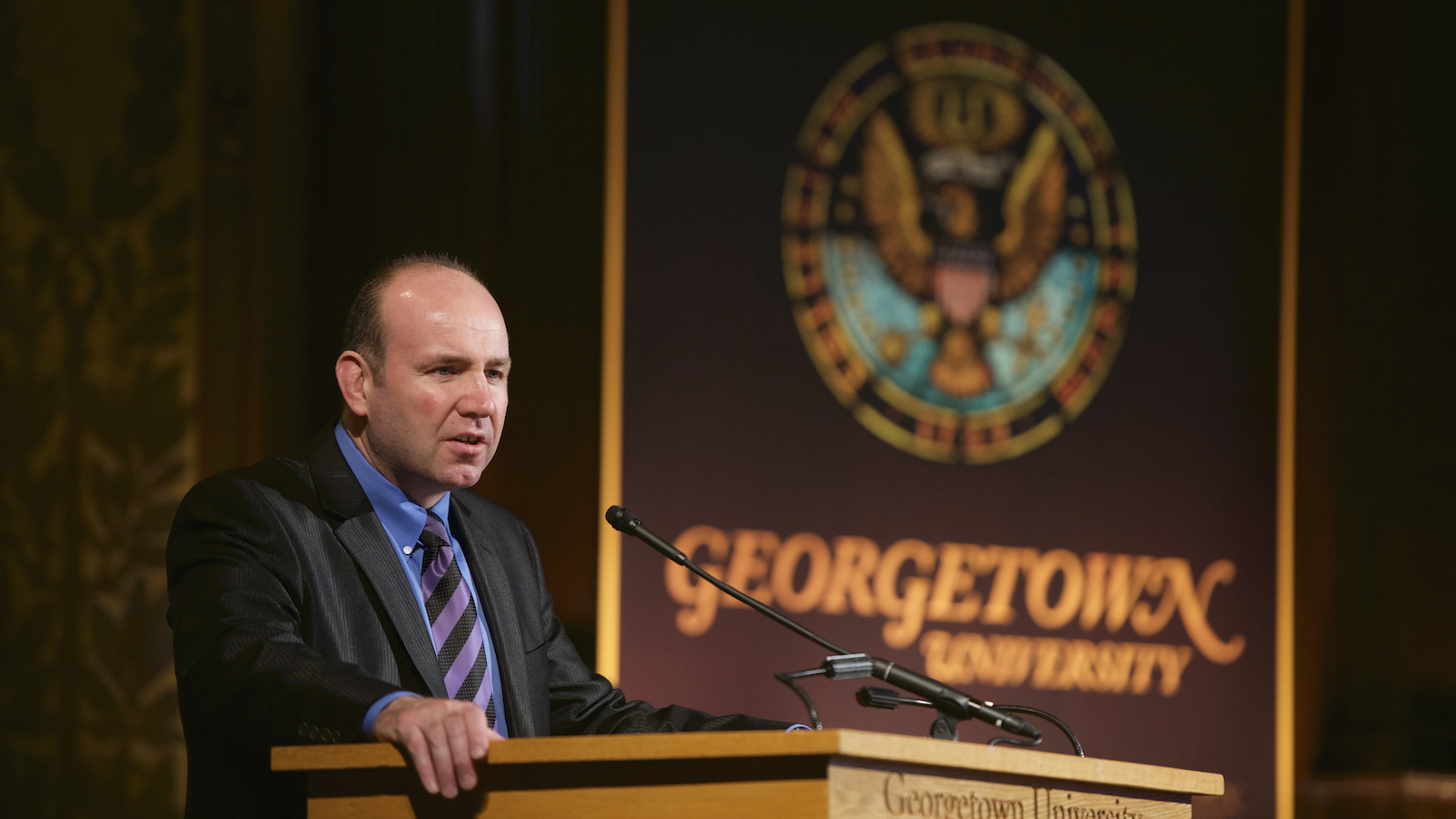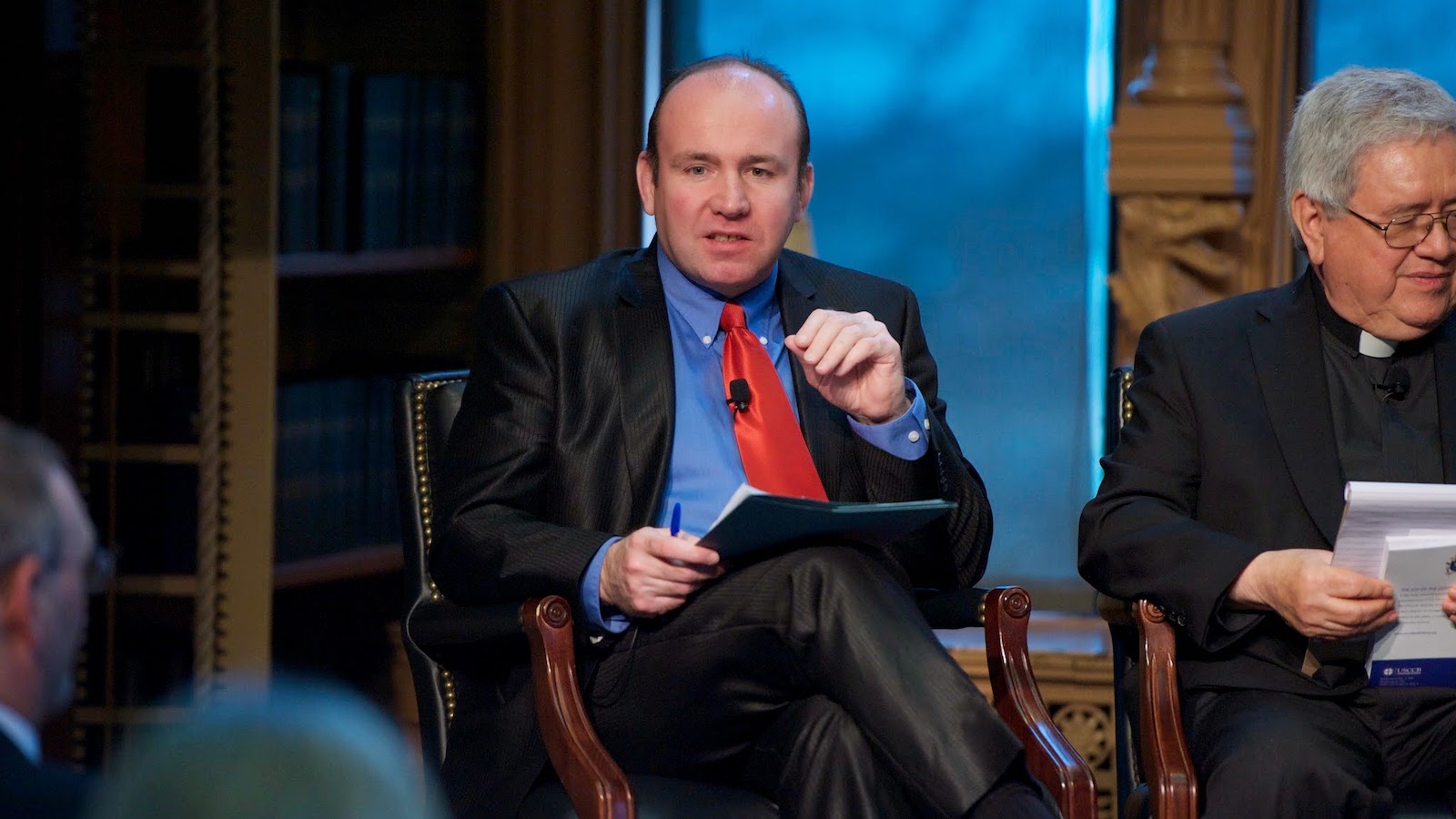Mannion has been called one of the “foremost contemporary theologians” of the Catholic Church. The acknowledgement was well earned. During the course of his career, Mannion authored or edited nearly two dozen books on the role of the church in the world, social ethics, and ecumenical and interreligious dialogue. A number of these publications were products of the many international conferences Mannion organized as a key figure in the field of theology.
A scholar who published widely in theology, Mannion also made countless contributions to life at Georgetown and the broader academy. As co-founder of a program at the university focused on Ireland, Mannion helped to break down disciplinary boundaries by sponsoring cutting-edge research, conferences, and teaching on the country in global perspective.
Although dedicated to rigorous scholarship, Mannion also played an active role in public life. He contributed to a number of popular media outlets, often pushing the Catholic Church to face its problematic past. In 2015, Mannion appeared on NPR’s Diane Rehm Show to discuss efforts to reform the Vatican Bank. More recently, after the Pennsylvania grand jury report documenting clerical sexual abuse was released in summer 2018, Mannion published a blistering piece in TIME magazine, where he called for the U.S. bishops to resign en masse in order for the Church to rebuild trust.
Prolific scholar. Academic leader. Public theologian. The roles Mannion played allowed many to benefit from his intellectual gifts and organizational talents. The Berkley Center takes his passing in September 2019 as an opportunity to reflect on the contributions Mannion made to the center and the wider Georgetown community, as well as the field of theology. Interviews with his friends and colleagues provide a personal look at how Mannion touched the lives of scholars, students, and practitioners with a generous spirit and a quick wit.



























